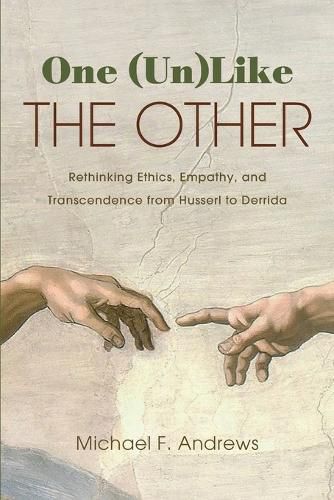Readings Newsletter
Become a Readings Member to make your shopping experience even easier.
Sign in or sign up for free!
You’re not far away from qualifying for FREE standard shipping within Australia
You’ve qualified for FREE standard shipping within Australia
The cart is loading…






This title is printed to order. This book may have been self-published. If so, we cannot guarantee the quality of the content. In the main most books will have gone through the editing process however some may not. We therefore suggest that you be aware of this before ordering this book. If in doubt check either the author or publisher’s details as we are unable to accept any returns unless they are faulty. Please contact us if you have any questions.
Aims to rethink ethics and transcendence in light of the phenomenology of empathy and social ontology.
One (Un)Like the Other responds to the question, "What are the conditions of possibility that make genuine knowledge of other persons-and, therefore, love-possible?" By providing an original interpretive framework for exploring ethics in relation to empathy and transcendence from multiple perspectives in continental philosophy, empathy is described as a trace of what remains essentially and irreducibly "other" in every act of givenness. The use of the phenomenological method places "Einfuehlung theory" in its rich historical context, beginning with Husserl and the early phenomenologists and extending to contemporary issues that explore "otherness" in light of consciousness, gender, embodiment, community, intentionality, emotions, intersubjectivity, values, language, and apophatic discourse. The implications of recasting "empathy" in an interpretive and dialogical model of reciprocity envision new paradigms of understanding ethics as an infinite playing field. No longer subservient to metaphysics and ontology, empathy is described as an act of infinite concern, a "hermeneutics of suspicion" that transcends epistemological theory and ethical command. Drawing on Husserl, Scheler, Stein, Heidegger, Levinas, Derrida, and others, this study presents an examination and expansion of empathy as an encounter with otherness in its most radical and transcendent forms.
$9.00 standard shipping within Australia
FREE standard shipping within Australia for orders over $100.00
Express & International shipping calculated at checkout
This title is printed to order. This book may have been self-published. If so, we cannot guarantee the quality of the content. In the main most books will have gone through the editing process however some may not. We therefore suggest that you be aware of this before ordering this book. If in doubt check either the author or publisher’s details as we are unable to accept any returns unless they are faulty. Please contact us if you have any questions.
Aims to rethink ethics and transcendence in light of the phenomenology of empathy and social ontology.
One (Un)Like the Other responds to the question, "What are the conditions of possibility that make genuine knowledge of other persons-and, therefore, love-possible?" By providing an original interpretive framework for exploring ethics in relation to empathy and transcendence from multiple perspectives in continental philosophy, empathy is described as a trace of what remains essentially and irreducibly "other" in every act of givenness. The use of the phenomenological method places "Einfuehlung theory" in its rich historical context, beginning with Husserl and the early phenomenologists and extending to contemporary issues that explore "otherness" in light of consciousness, gender, embodiment, community, intentionality, emotions, intersubjectivity, values, language, and apophatic discourse. The implications of recasting "empathy" in an interpretive and dialogical model of reciprocity envision new paradigms of understanding ethics as an infinite playing field. No longer subservient to metaphysics and ontology, empathy is described as an act of infinite concern, a "hermeneutics of suspicion" that transcends epistemological theory and ethical command. Drawing on Husserl, Scheler, Stein, Heidegger, Levinas, Derrida, and others, this study presents an examination and expansion of empathy as an encounter with otherness in its most radical and transcendent forms.